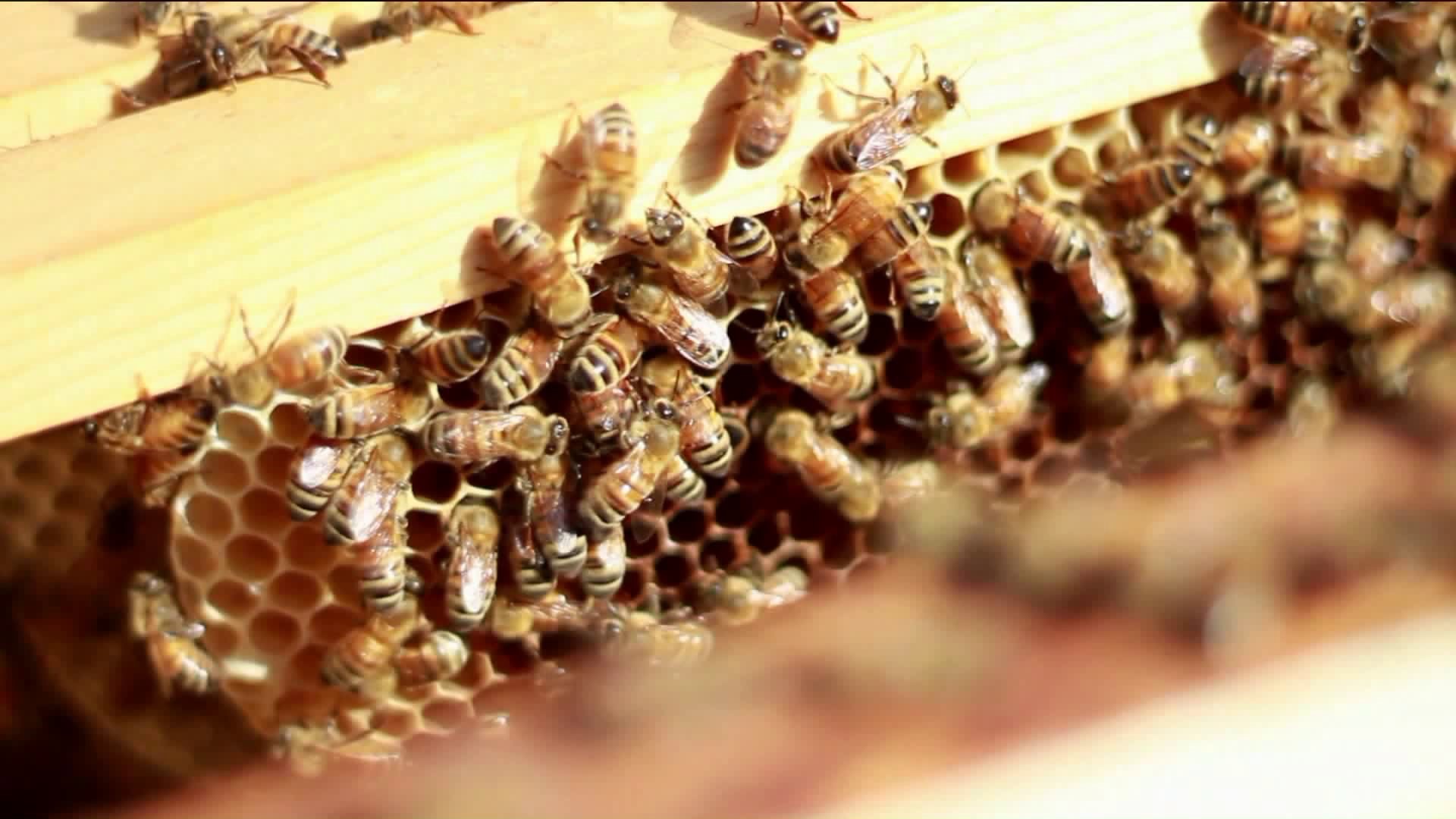STONINGTON — There's a sign in the newly created Dodge Paddock and Beal Preserve that says ‘conservation through restoration’.
For the bee population, restoration is almost critical according to Mary Ellen Mateleska of the Mystic Aquarium who said it has decreased about 90 percent since 1990.
So this plot of land in Stonington is being restored by Mystic Aquarium, one blade of grass at a time.
“It all starts with this grass, that can help stabilize this marsh, so that everything else can grow," said Mateleska.
At the Sticky Situations store in Olde Mistick Village, owner Stephen Clemente said “They’re kinda flying little teddy bears. Fuzzy little guys bringing pollen back to the hive with one sole purpose and that is to make honey.”
He isn’t just selling flavored honey, he’s spreading education about why bees don’t hang around. It’s called colony collapse disorder.
“Someone goes out to their hive one day the bees are living there and they’re happy. Then, another day they go back, and they’re gone. The hive is empty,” said Clemente.
The belief is they’re off to better non tainted crops, free of chemicals, somewhere like the preserve.
“If you isolate the honey bee onto crops that aren’t tainted you can see an increase in the size of the colony,” said Clemente.
But it’ll take more than pollen to build back the honey bee population. Outside of the growing season, Stephen collects his over 2 million bees, and sends them around the country to other farms, specializing in a particular crop, like cinnamon or key limes in Florida.
“They pollinate that crop and make that flavor honey," said Clemente.
Now these bees travel everywhere for different flavors. Lake placid, Yuma, Wisconsin, and in the end, it’s not just helping the bees from dissappearing, it’s keeping the farms from disappearing as well. Honey made is left behind, so the farms can sell the product too.
For Clemente, “It creates an awareness, and a win on both sides."
And in the end, a once thriving bee business in the state will grow again, first at the marsh, then at the store, as the bee biz buzzes hopefully one day again.

